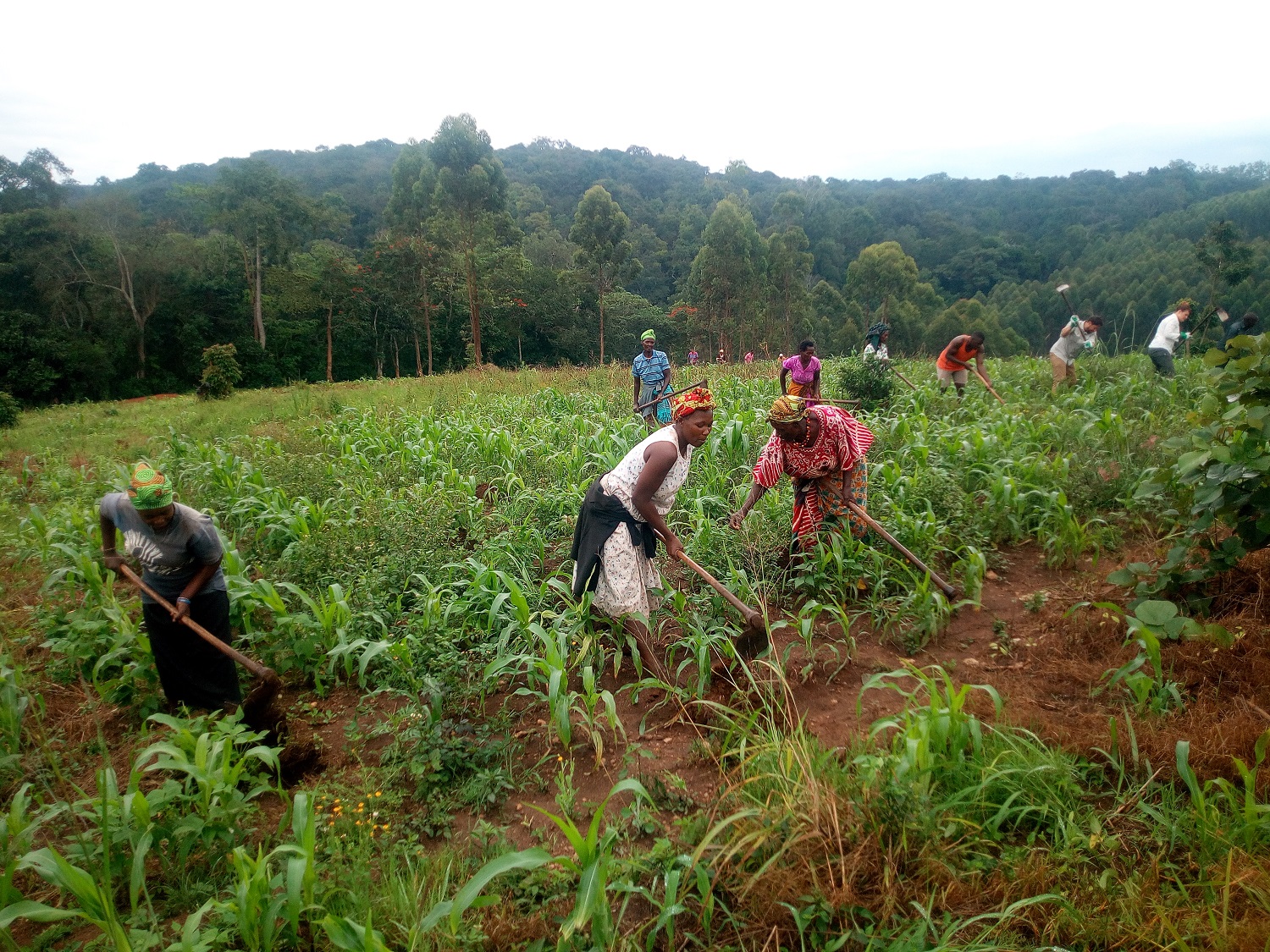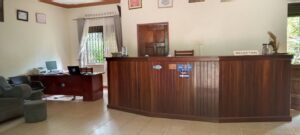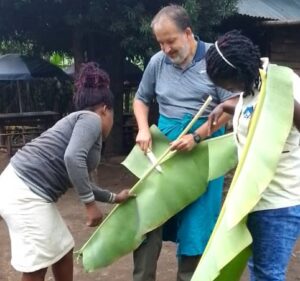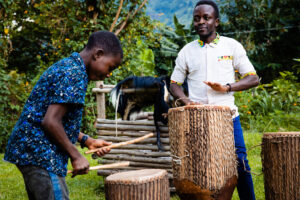Rainforest and community tours directly promotes conservation initiatives in three communities within the Rwenzori region. The purpose of this engagement is to use tourism proceeds to set a practical example of how communities can be empowered to address the challenges of climate change within the traditional land tenure system and culture setup. Obviously, tourism is the largest and most sustainable accelerator of conservation, by providing the financial resources that help to intensify community effort by marching the land and labor locally contributed by the community. Besides the financial boost that comes from tourism, communities get the motivation from the open partnership opportunities with the visitors and other conservation lovers who give a hand.
Under the buffer conservation initiative, our projects are strategically located, neighboring; Rwenzori Mountains, Kibale Forest, and Queen Elizabeth National Parks. Our conservation projects are three-dimensional. We engage in tree planting and conservation, skills empowerment for the women and youth, and investment in tourism as a way to sustainably improve the economic status of the local communities. In each of the three work sites, we develop local partnerships and attract external partnerships to enrich the cause with external knowledge, financial support, networking, and tourism development. Currently, we run the following projects in the buffer areas of three National Parks;
Rwenzori Mountains National Park: Local target is the Ruboni community under the Ruboni Community Conservation and Development Program (RCCDP). We carry out tree planting activities focusing on, natural forest regeneration, women and youth empowerment through handicrafts making, tourism training, evening cultural performances, climate-smart agriculture, agro produce value addition,
Queen Elizabeth National Park: Local target is the Kikorongo community. We carry out waste management activities, Renewable energy production, handicrafts development, tourism development, sustainable consumption and production, youth and women skilling, and tree planting through promoting community-led tree planting projects.
Kibale National Park: Local target is the Kahondo community. This is the youngest of the three projects. currently, we carry out tree planting and community mobilization. The project is growing indigenous trees on the land bordering the park. Kahondo community is replicating and customizing the achievements already attained in Ruboni and Kikorongo communities.
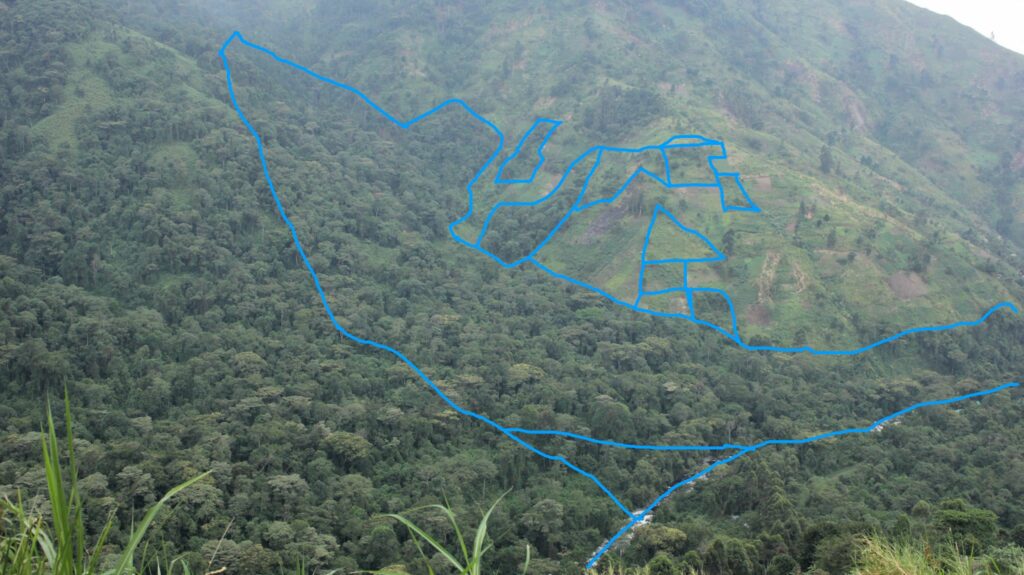
In all cases, the community offers part of their land neighboring the park; we amalgamate it and create a buffer zone land reserve within the community. It is on this land where we implement conservation and sustainable tourism projects. The tree planting and sustainable tourism projects are piloted on the collective community reserve then expanded to the household lands as agro-forestry and community tourism initiatives. Every one of the communities is unique in culture, landscape, climate, location, and geographical background. They all learn from each other and customize the solutions that are used in each of the communities during the replication process.
So far, a total of 127 acres of land has been put aside as community-owned reserves in the three project sites. On these plots, an estimate of 20000 trees has been planted to restore the degraded landscapes as well as create a cushion for the already existing indigenous forests which touch the external layers of the National Parks. Besides the 20000 thousand trees planted, we have mobilized the community to plant trees in their household lands as household woodlots in the agricultural plots. An estimate of 365,000 trees has been planted in the household plots around Rwenzori mountains national park, resorting to an estimated 1825 acres of household land.
Tree planting in the Rwenzori Mountains is yet to be replicated to the other two communities near Queen Elizabeth and Kibale National Parks. The work had started in 2019 through arranging annual tree planting events, only to be hindered by the emergence of covid-19. Besides the tree-planting events, we also organize other conservation events in these communities. These include; waste collection events, composting events, energy briquette making events, training, awareness-raising, and other conservation public rallies.

